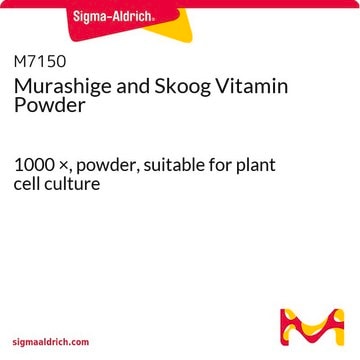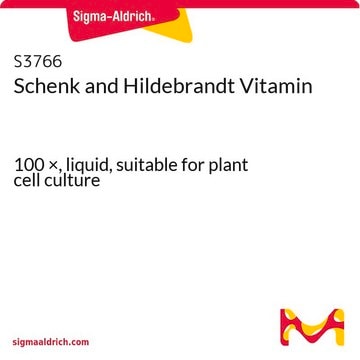G5893
Gamborg′s B-5 Basal Medium with Minimal Organics
fine powder, suitable for plant cell culture
Synonym(s):
B-5 Basal Medium, Basal Medium, Minimal Organics Medium
About This Item
Recommended Products
form
fine powder
Quality Level
technique(s)
cell culture | plant: suitable
application(s)
agriculture
storage temp.
2-8°C
General description
Application
- as a component of liquid media for the tissue culture of Brassica rapa
- as a component of callus inducing medium for culturing Arabidopsis cardiolipin mutant seedlings
- as a component of solid GM medium for germination of Arabidopsis seeds
Formula variant
Media Formulation
Quantity
Signal Word
Warning
Hazard Statements
Precautionary Statements
Hazard Classifications
Ox. Sol. 3
Storage Class Code
5.1B - Oxidizing hazardous materials
WGK
WGK 1
Flash Point(F)
Not applicable
Flash Point(C)
Not applicable
Certificates of Analysis (COA)
Search for Certificates of Analysis (COA) by entering the products Lot/Batch Number. Lot and Batch Numbers can be found on a product’s label following the words ‘Lot’ or ‘Batch’.
Already Own This Product?
Find documentation for the products that you have recently purchased in the Document Library.
Customers Also Viewed
Articles
Classical plant tissue culture media developed years ago by pioneers such as Murashige, Skoog, Gamborg, and others still play a vital role in plant tissue culture research today.
Our team of scientists has experience in all areas of research including Life Science, Material Science, Chemical Synthesis, Chromatography, Analytical and many others.
Contact Technical Service










